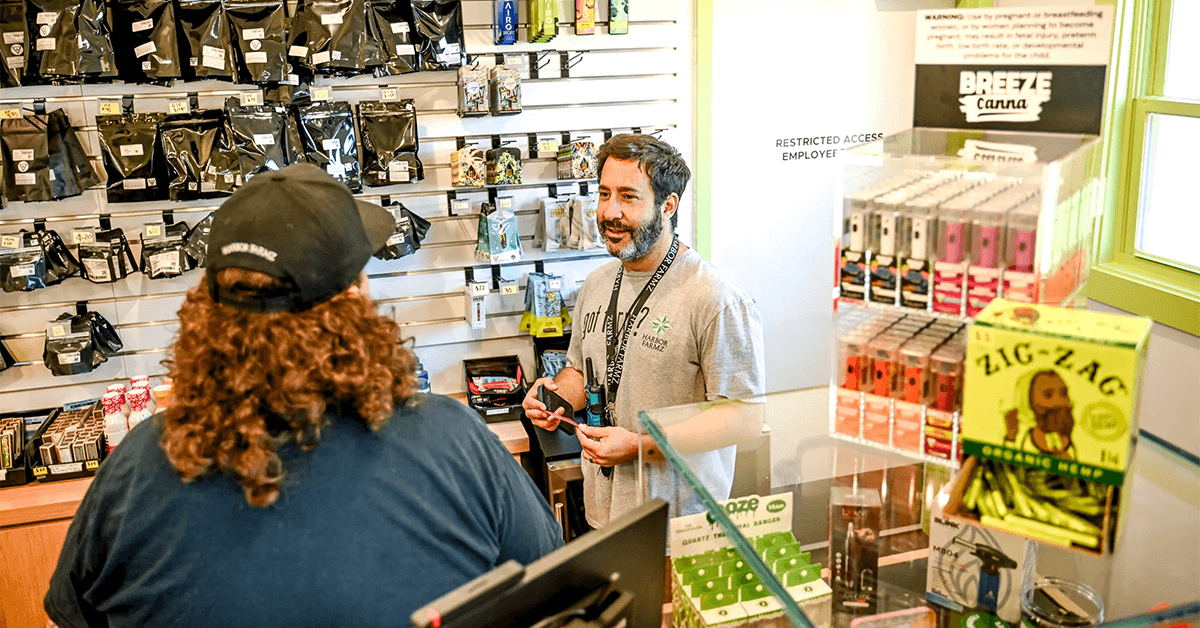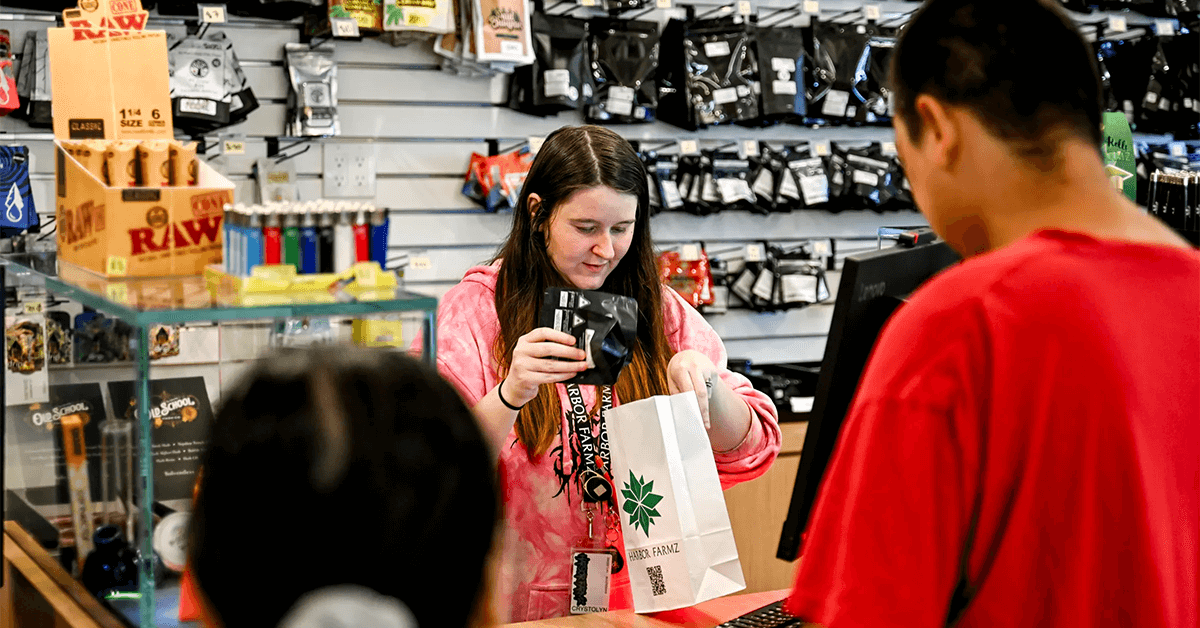House Republicans Remove Cannabis Banking Protections from Funding Bill

Why Did House Republicans Drop Cannabis Banking Protections?
House Republicans recently blocked a provision within a crucial funding bill that aimed to protect financial institutions serving legal cannabis businesses. According to a report by The Hill, the provision would have prohibited the use of government funds to penalize banks and credit unions for offering services to legal hemp and cannabis businesses. This decision came after significant internal opposition and highlights the ongoing debate over federal cannabis policies.
Limited Options for Cannabis Banking in Michigan
In Michigan, cannabis businesses face limited banking options. Only a few small banks and credit unions provide services to the industry, and these come at high monthly costs. Larger financial institutions refrain from engaging with cannabis businesses due to the fear of losing their federal charters. The federal classification of cannabis as a Schedule I drug, alongside heroin and cocaine, perpetuates these challenges.
Impact on Legal Cannabis Businesses Across the U.S.
Representative David Joyce (R-Ohio), chair of the subcommittee overseeing the funding bill, addressed concerns about the removal of cannabis banking protections. He emphasized the importance of respecting state laws and the potential benefits of cannabis regulations for public safety and quality of life. Joyce's Financial Services and General Government bill initially included provisions to protect states' rights in regulating cannabis, aiming to harmonize federal and state laws.
Congressional Debate: States' Rights vs. Federal Law
During a recent subcommittee markup, Representative Chuck Edwards (R-N.C.) voiced strong opposition to the banking protections. Edwards argued that permitting banking for a federally illegal substance like cannabis could be seen as tacit approval of its use. He stressed the need for clear federal policies amid the evolving landscape of state cannabis laws, asserting that cannabis should remain illegal due to its potential harms.
Growing Support for Cannabis Banking Reforms
The debate within Congress reveals a division, especially among Republicans, over cannabis legalization. Despite this, there is growing support for reforms that would allow cannabis businesses better access to banking services. The increasing number of states legalizing recreational marijuana and the growing public support for legalization are driving this momentum. These factors are reshaping federal cannabis policies and banking regulations.
Overview of the Secure and Fair Enforcement Banking Act (SAFE Act)
The Secure and Fair Enforcement (SAFER) Banking Act of 2023, introduced by a bipartisan group in Congress, seeks to provide protections for financial institutions serving state-sanctioned cannabis businesses. The act aims to resolve conflicts between federal and state laws by creating a safe harbor for banks, credit unions, and other financial institutions. If enacted, the SAFER Banking Act could significantly impact the cannabis industry by promoting public safety, expanding access to deposit accounts, and enabling more efficient business operations.
Rep. Joyce Addresses Bipartisan Support
Representative Joyce highlighted the strong bipartisan support for cannabis banking measures. He acknowledged concerns but emphasized his commitment to funding the government and advancing his legislation.
Final Thoughts
The decision by House Republicans to remove cannabis banking protections from the government funding bill underscores the complex political divisions and policy concerns surrounding cannabis legalization in the U.S. Proponents argue for states' rights and improved banking access for legal cannabis businesses, while opponents raise issues about federal law and potential risks. This debate highlights the evolving nature of cannabis regulation and the challenges faced by policymakers in aligning state-level reforms with federal mandates.
Discover The Top 20 Cities In Michigan For Cannabis Enthusiasts

Michigan has firmly positioned itself as a top destination for cannabis enthusiasts, thanks to its progressive stance on marijuana legalization. With recreational cannabis fully legalized, the state offers a variety of options for both residents and visitors to enjoy cannabis-related activities and amenities. Whether you're looking for dispensaries, 420-friendly accommodations, or cannabis-themed events, Michigan's cities have something special to offer. Let's take a closer look at what makes some of these cities particularly welcoming to those who appreciate the herb.
Michigan CRA Mandates MCT Oil Testing in Cannabis Vape Cartridges

The Cannabis Regulatory Agency (CRA) in Michigan has announced a significant update to its Sampling and Testing Technical Guidance for Cannabis Products. Starting October 1st, 2024, medium-chain triglyceride (MCT) oil will be included as a target analyte for vape cartridge testing. This update aims to enhance consumer safety by identifying and eliminating potentially harmful ingredients in inhalable cannabis products.
MCT oil, often derived from coconut or palm oil, is widely used in food and oral supplements. However, its safety as an inhalable substance is questionable. When aerosolized and inhaled, MCT oil can pose respiratory health risks. Consequently, any cannabis vape products that test positive for MCT oil will not be eligible for remediation.
"From a public health and safety standpoint, the potential for adverse effects with MCT oil underscores the importance of safety guidelines for product development," stated CRA Executive Director Brian Hanna. "Michigan's licensed cannabis businesses must prioritize respiratory safety when formulating or using inhalable products, opting for ingredients that have been thoroughly evaluated for their compatibility with lung health. I look forward to when our new state reference laboratory is up and running, advancing the health and safety of Michigan cannabis consumers with advanced testing for diluents."
Robin Schneider, executive director of the Michigan Cannabis Industry Association, highlighted the proactive measures taken by some retailers. "Several of our retail members have been proactively pulling and testing their inventory to ensure the brands they showcase on their shelves do not contain MCT oil," she said. "Moving forward, this testing will take place before the retailers purchase inventory from producers, easing the burden on retailers and ensuring that the products they sell are safe. Required testing for MCT oil will further protect cannabis customers from vape-related lung illnesses and is a win for both the industry and consumers."
MiNORML Executive Director Anqunette Sarfoh expressed strong support for the new regulations. "The health and safety of cannabis consumers must always be our top priority. Emerging evidence suggests that inhaling MCT oil can pose serious respiratory risks, and it's imperative that we take proactive measures to prevent potential harm. By enforcing stricter regulations on vape product ingredients, Michigan is taking a significant step towards ensuring a safer cannabis industry for everyone, and we commend the state's commitment to protecting consumers."
Anton Harb Jr., an Iraq combat veteran and founder of the Veteran Access Program in Michigan, also praised the decision. "As the cannabis industry matures, so will the scientific and regulatory safety measures protecting it. This regulatory decision helps ensure the continued safety and well-being of all Michigan cannabis consumers."
The CRA is dedicated to evidence-based decision-making in its regulatory practices. As ongoing research into cannabis use, safety, and testing evolves, the Sampling and Testing Technical Guidance for Cannabis Products will be updated to reflect the latest findings and best practices.
Eaton County's First Recreational Cannabis Shop Sees Strong Start

Eaton County's first recreational cannabis store, Harbor Farmz Provisioning Center, has experienced a successful start, welcoming thousands of customers since its June 10th opening. Located at 122 Lansing Road, the store has drawn patrons from Charlotte, Olivet, and Bellevue, according to Assistant General Manager Alyssa Murray.
"We've had a very positive response from lots of people," Murray stated, highlighting the broad community interest.
While neighboring areas like Lansing and Ingham County had already embraced recreational cannabis sales and benefited from the accompanying tax revenue, Eaton County had not yet entered the market. This new venture brings anticipated financial benefits to local communities through state revenue.
During the 2023 fiscal year, Michigan collected $87 million in cannabis tax revenue, a significant increase from the $59.5 million collected in 2022. The revenue is distributed among 269 cities, villages, and townships allowing cannabis sales, with each eligible municipality and county receiving $59,000 per licensed retail store and microbusiness.
For example, Lansing, which has 21 cannabis dispensaries, received $1.4 million in tax revenue. Charlotte is also set to gain financially, charging a $5,000 application fee and a $5,000 annual renewal fee for each license. The city allows retail, safety facility, transport, and processing licenses, but excludes grow facility, microbusiness, consumption, or temporary licenses. All cannabis facilities in Charlotte are confined to three zoning areas: Lansing Road near Interstate 69, Clinton Trail near Meijer, and around Lipsey Drive and Packard Highway.
Harbor Farmz is the first of several expected cannabis businesses in Eaton County, with Hollywood Jacks and High Society Cannabis also in the process of setting up shop in Charlotte. According to City Clerk Mary LaRocque, these businesses are at various stages of the application process.

Charlotte's City Council approved the recreational cannabis ordinance on August 21st, 2023, by a 6-1 vote. The ordinance, which took effect in October, does not cap the number of dispensaries. Councilman Mike Duweck, who initially had reservations about recreational cannabis, supported the ordinance after recognizing potential benefits like property redevelopment, tax revenue, and job creation.
The Harbor Farmz site was previously a veterinary hospital, while Hollywood Jacks plans to repurpose a former Mexican restaurant. Duweck emphasized that the early entrants into the market are likely to succeed. Conversely, Councilman Anthony Rodriguez, the sole opposing vote, had concerns about crime statistics and dispensary locations but has since acknowledged the benefits and community support for the store.
Kathy McCoy, a Charlotte resident, expressed support for the new dispensaries, appreciating the repurposing of unused properties. "What's the harm?" she remarked.
Harbor Farmz, established in 2017, opened its first location in Three Rivers in 2022, where it was also the pioneering dispensary. For the Charlotte store, the company prioritized hiring local residents. Murray, a long-time Charlotte resident, emphasized the importance of a positive first impression. "It's an experience they're buying into," she said.
Customer Floyd Harkness, who uses cannabis for chronic pain, praised the knowledgeable service he received at Harbor Farmz. "They are knowledgeable. I was impressed with their knowledge the other day when I came, so that's what brought me back," he commented.
House of Dank Acquires Jess Fendo's Art for Belle Isle Conservancy Donation

House of Dank recently announced the acquisition of a unique art piece created by local artist Jess Fendo. The artwork, a giant football cleat transformed into a visual homage to Belle Isle and the Detroit River, was purchased for $10,000 during a silent auction. This purchase was part of Detroit's 2024 NFL Draft 'DCLEATED' program, which merges football and art to support various community causes. The funds from this auction were generously donated to the Belle Isle Conservancy, demonstrating House of Dank's dedication to community and cultural enrichment.
The 'DCLEATED' program, supported by City Walls x Visit Detroit, combines the vibrant worlds of football and art to showcase Detroit's creativity and community spirit. Local artists, including Jess Fendo, transformed football cleats into twenty large-scale art installations, each paired with a nonprofit organization. These artworks were displayed around downtown Detroit during the NFL Draft, highlighting the city's commitment to community-driven initiatives and creative expression.
Fendo's piece, featuring elements of the historic Belle Isle Aquarium and an Old English "D" symbolizing Detroit, will be showcased at House of Dank's corporate office in Madison Heights. Plans are also underway to display the cleat at various upcoming events, further integrating art into community activities.
Marvin Jamo, owner of House of Dank, expressed pride in the purchase: "House of Dank is deeply rooted in Detroit. We started on 8 Mile over a decade ago as caregivers, and we continue to support the city, community, and culture that have supported us. This purchase not only benefits a cause we believe in but also provides us with a fantastic piece of art to share."
The Belle Isle Conservancy collaborates closely with Michigan's Department of Natural Resources (DNR), the City of Detroit, and other partners to bring resources and improvements to Belle Isle. Since February 2014, the DNR has managed Belle Isle as a state park under a long-term lease, with the Conservancy advocating for the park, coordinating volunteers, operating the Belle Isle Aquarium, and fundraising for various projects.
In appreciation of House of Dank's contribution, the Belle Isle Conservancy offered a private tour of the Belle Isle Aquarium to their representatives. This gesture underscores the importance of donations in maintaining the aquarium as a free public attraction. Additionally, House of Dank is planning an event to raise further awareness and support.
Meagan Elliott, President and CEO of the Belle Isle Conservancy, remarked, "Thanks to the 'DCLEATED' program, Jess Fendo's vision, and House of Dank's generosity, the NFL Draft's energy continues to benefit Belle Isle. Donations like this keep the aquarium free for everyone to enjoy."
House of Dank plans to host Jess Fendo at their upcoming participation in Arts, Beats & Eats, a major Michigan festival in Royal Oak over Labor Day weekend. This collaboration may include a live painting installation or a custom line of exclusive accessories, with Fendo's cleat also on display at Dankland for public enjoyment.
Jess Fendo expressed her gratitude for being part of the 'DCLEATED' project, stating, "This initiative reflects our shared commitment to uplifting our neighborhoods. Creating something for the NFL Draft and supporting a nonprofit I am passionate about was unforgettable. I look forward to working with House of Dank in the coming months."
Through this latest collaboration, House of Dank continues to support local artists and community institutions. The partnership with the Belle Isle Conservancy and Jess Fendo highlights House of Dank's ongoing commitment to art, community, and philanthropy in Detroit.
Verano's Cabbage Club Brings Premium Perks to Michigan Cannabis Consumers

Verano Holdings Corp., a prominent multi-state cannabis company, is expanding its innovative Cabbage Club membership program to Michigan, Connecticut, and Maryland. Cabbage Club, a pioneering cannabis membership club in the U.S., offers a variety of exclusive benefits to its members, including monthly store credits, merchandise, early access to product releases, line-skipping privileges, special event access, and concierge services.
Expansion and Benefits
The expansion to Michigan marks a significant development in Verano's efforts to provide unique, value-added experiences for cannabis consumers. Initially launched in Illinois and New Jersey, the Cabbage Club will now be available at Zen Leaf dispensaries, including one in Michigan. This expansion covers five states, with plans for further growth across Verano's 142 dispensaries in 13 states.
Cabbage Club members can enjoy numerous perks, such as:
- Monthly Store Credits and Seasonal Coupons: Members receive store credits and exclusive coupons each month.
- Exclusive Merchandise and Early Product Access: Access to members-only merchandise and early access to new product releases.
- VIP Event Access and Line-Skipping Privileges: Priority access to special events and the ability to skip lines at dispensaries.
- Private Concierge Services: Personalized services to enhance the shopping experience.
- Member Appreciation Days and Warm Cookies: Special appreciation events and complimentary cookies at checkout.
Membership Levels
Cabbage Club offers two main membership tiers:
- Dime Membership ($149): Includes $10 monthly store credit, $25 in seasonal coupons, and additional rewards, totaling $265 in annual value.
- Quarter Membership ($249): Includes $20 monthly store credit, $50 in seasonal coupons, and additional rewards, totaling $440 in annual value.
Additionally, there is the Silver Dollar Club, an exclusive tier available by invitation, which offers secret perks beyond those provided by the Dime and Quarter memberships.
Joining Cabbage Club
Starting July 1st, individuals can join Cabbage Club as Founding Members at a discounted rate by visiting earlyaccess.cabbageclub.co. This limited-time offer allows new members to enjoy the extensive benefits of the club at a reduced cost.
Verano's Chief Marketing Officer, David Spreckman, emphasized the success and future potential of Cabbage Club, stating, "After exceeding expectations in Illinois and New Jersey, introducing Cabbage Club to new consumers in leading cannabis markets underscores our mission to provide a unique shopping and community experience. We look forward to expanding the Cabbage Club community across our Zen Leaf and MÜV dispensaries."


 Helpful Links
Helpful Links